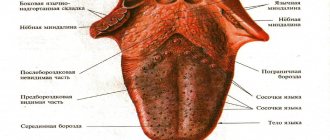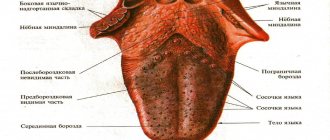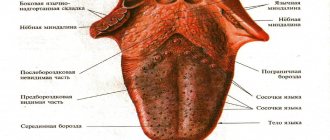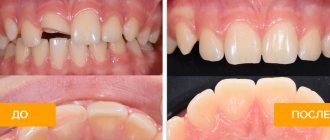Bitterness in the mouth is a common symptom of various diseases of the digestive tract. It can be observed only occasionally after drinking alcohol or fried and fatty foods, or it can appear constantly - in this case it is necessary to undergo a full examination and determine the cause of the pathology. What can cause bitterness in the mouth, and what additional symptoms can it be accompanied by?
Causes of bitterness in the mouth after eating
The unpleasant taste usually disappears when the cause that caused it is eliminated. Diet errors (fatty, deep-fried foods), smoking, bad teeth, poor oral hygiene, and taking certain medications are potential causes of bad taste. However, dryness and bitterness in the mouth are also symptoms of gastrointestinal diseases. Biliary dyskinesia, chronic cholecystitis, cholelithiasis cause discomfort in the oral cavity. Also, the cause of a bitter taste can be diseases of the duodenum, chronic gastritis, enteritis, and colitis.
How to remove severe bitterness in the mouth and nausea? It is necessary to treat the underlying disease, the manifestations of which are these symptoms. But even after cholecystectomy, unpleasant symptoms may persist. Bitterness in the mouth after gallbladder removal is often associated with the so-called postcholecystectomy syndrome. If, despite following a diet, a bitter taste in the mouth persists for a long time after surgery, you should consult a doctor to identify the cause and prescribe appropriate therapy. The cause of bitterness in the mouth after eating can be simple overeating. In case of a large feast, you can take a tablet of an enzyme preparation (panzinorm, festal, mezim forte) during meals. But it is still advisable to adhere to the rules of a healthy diet: eat small portions 5-6 times a day, eliminate or limit the consumption of fatty and fried foods, drink more water. Then the question “how to treat bitterness in the mouth while eating” will not arise, and “bells” from the liver in the form of an unpleasant taste will not come.
Where does the bitter taste come from?
An unpleasant taste may be present constantly or appear periodically. This symptom is associated with the release of bile into the esophagus. Patients often notice a bitter taste in the mouth in the morning, especially when eating fatty foods the day before and after sleeping on the left side.
Bile is a liver secretion that is involved in digestion. The fluid flows through the ducts into the gallbladder and from there into the duodenum. Normally, bile does not flow into the esophagus, and the person feels well.
After eating certain types of food, the liver may react by producing more secretions. The volume of bile in the intestines increases, and a small part enters the esophagus, causing a bitter taste in the mouth. The same reaction occurs when using certain medications or when exposed to other factors. In any case, an unpleasant taste is a reason to consult a doctor. Only by identifying the cause of bitterness in the mouth can a person’s well-being be improved.
What to do if you have a bitter taste in your mouth and a white coating on your tongue
Some medications cause a bitter taste. These include lithium preparations, antidepressants, antibiotics, allopurinol, vitamin and mineral complexes. Bitterness in the mouth can be combined with nausea, dryness, and a white coating on the tongue. Usually, special treatment for bitterness in the mouth after taking antibiotics or other medications is not required. The unpleasant taste disappears upon completion of the course of treatment and no longer bothers you.
What should you do if you have a bitter taste in your mouth and a white coating on your tongue that persists for a long time after taking medications? Contact your doctor. It may be necessary to prescribe hepatoprotectors - drugs that restore liver function. The treatment regimen for some diseases initially includes medications that “protect” the liver. This approach is practiced when prescribing chemotherapy drugs, especially with long courses and high dosages.
Treatment
Treatment is prescribed based on diagnostic results, taking into account the causes of bitterness in the mouth.
Conservative therapy
Photo: freepik.com
A doctor may prescribe the following medications:
- Choleretics and cholekinetics. These are choleretic drugs that are prescribed for cholangitis and cholecystitis.
- Enzymes that stimulate digestion. They can be used not only for diseases of the digestive organs, but also for liver damage (in combination with hepatoprotectors).
- Antispasmodics. They are prescribed if bitterness in the mouth appears along with abdominal pain and is associated with gastritis or other diseases of the digestive system. Antispasmodic drugs relieve pain and relax the smooth muscles of the stomach.
If the appearance of bitterness is associated with viral hepatitis, the doctor will prescribe complex therapy for the underlying disease. In case of parasitic infection, anthelmintic drugs are prescribed. Additionally, it is recommended to follow a diet, frequent, small meals and control the drinking regime.
Surgery
Surgical treatment is carried out for gallstone disease to remove and remove stones - calculi. If the gallstones are small, the ESWL (extracorporeal shock wave lithotripsy) technique is used, crushing the stones with a shock wave. In more severe cases, open or laparoscopic cholecystectomy is prescribed. It is carried out if neither diet nor ultrasound methods improve the condition. A cholecystectomy involves removing the gallbladder.
Stones extracted from the gallbladder. Photo: Alena1919 / Depositphotos
Other causes of bitterness in the mouth
Why there is a constant bitter taste in the mouth - possible reasons:
- smoking;
- inhalation of vapors of certain chemicals;
- dehydration;
- glossitis;
- dry mouth;
- allergy;
- salivary gland infections;
- lack of zinc and vitamin B12;
- nasal polyps;
- autoimmune diseases such as Sjögren's syndrome and Bell's palsy;
- mouth breathing;
- inflammatory diseases of the upper respiratory tract;
- injuries to the head, mouth, nose;
- braces;
- Radiation therapy to the neck or head.
Bitterness in the mouth in the early stages of pregnancy may be associated with changes in hormonal levels, attacks of nausea and vomiting (toxicosis). Read more about this symptom on our website.
Causes related to food intake
The causes of bitterness in the throat are not limited to the above-mentioned factors. A similar sensation is possible only after eating. It is caused by the intake of overly spicy, salty, fatty, fried foods.
Such products cause spasm of the bile ducts, inflammation of the liver and gallbladder. Hence the bitterness, pain, and discomfort in the stomach.
It is also possible that the stomach is involved in the process. It needs to be dealt with separately, under the supervision of a competent specialist. Bitterness in the throat after eating can be removed only by adjusting your own diet.
- How to get rid of a burning sensation in the mouth and throat? Tips and tricks
How to get rid of bitterness in your mouth
If the bitterness and unpleasant taste are not caused by pathologies of the gastrointestinal tract and other diseases, then you can “fight” them yourself:
- Maintain good oral hygiene. You need to brush your gums and tongue, not just your teeth. Add a small amount of baking soda to your toothbrush before applying toothpaste. Brushing your teeth and tongue should take at least two and a half minutes. Remember to brush your teeth twice a day. Use dental floss and a tongue scraper and rinse your mouth regularly;
- eat more citrus fruits, drink orange and lemon juices. The acid stimulates the production of saliva and eliminates the bitter taste in the mouth;
- Visit your dentist regularly for preventive examinations and dental plaque removal;
- stop smoking;
- drink enough water;
- limit your consumption of fatty and spicy foods. Eat slowly, chewing your food thoroughly.
If you follow all these rules, and the bitterness in your mouth persists, consult a doctor, as the cause of unpleasant symptoms may be endocrine diseases, mental disorders, and pathologies of the gastrointestinal tract.
Related services: Consultation with a pediatrician Consultation with a family doctor
Hepatitis
Liver cells are responsible for the production of bile necessary for the normal digestion process. When they are destroyed due to hepatitis, this function becomes noticeably more complicated. The patient complains of bitterness in the throat and burning in the mouth. Other symptoms of this disease of an autoimmune or infectious nature are:
- belching,
- painful sensations in the right side, radiating under the shoulder blade,
- nausea,
- loss of appetite and sudden weight loss,
- irritation on the skin,
- jaundice.
When the first signs of liver problems appear, it is important to immediately undergo a diagnosis in order to avoid the development of such dangerous consequences as liver cirrhosis, coma, and cancer.
The presence of the disease can be determined using a blood test, ultrasound examination of the liver and spleen, which significantly increase in size in an inflamed state.
Hepatitis in the acute stage is treated inpatiently. The patient is recommended:
- bed rest,
- a gentle diet,
- quitting smoking and alcohol,
- complexes of vitamins and minerals to support immunity,
- a course of drugs aimed at reducing intoxication of the body,
- means for protecting the liver from the effects of pathogenic microorganisms,
- daily enema.
Treatment of bad taste in the mouth in adults
The fastest way to find the root of the problem is to make an appointment with your dentist. If you experience other serious symptoms besides a strange taste in your mouth, or suspect your medications may be causing it, see your GP.
Diagnostics
An unpleasant taste in the mouth that does not go away on its own or returns regularly should not be ignored. Talk to your dentist or primary care physician so they can determine the cause and prescribe treatment if necessary.
Causes of bad taste in the mouth in adults
Find out whether the strange taste in your mouth is caused by gum disease, medications, dry mouth, or a more serious medical condition. Sometimes an unpleasant taste in your mouth is completely normal. But if you've had a strange taste in your mouth for a few days, it could be a sign of an underlying dental or medical problem. Although the most common causes may not be serious, it is best to discuss treatment with your dentist.
Good to know
Oral diseases: KP guide on the treatment of stomatitis, gingivitis, caries
Diet
The diet should include soft, well-chopped food. Gentle cooking methods - steam, bake, boil, stew. Include puree soups and cream soup in your diet. Bread can be consumed dried, yesterday's bread made from first and second grade flour. Meat – chicken, turkey, lean parts of beef, lean fish. Eggs should be in the form of omelettes, steamed in the oven. Food should be warm, not cold or hot. If there is a symptom of bitterness in the mouth, it is necessary to exclude sausages, smoked foods, fatty, fried, canned, and pickled foods from the diet. It is completely necessary to exclude alcohol, spicy foods, coffee, chocolate, carbonated drinks, pork, and some legumes.
Sour mine
In the morning, your beloved has such an expression on his face as if he had been eating lemons all night: the man tirelessly rinses his mouth and complains about the sour taste. You should tell your loved one that he is wasting his time: these manipulations will not save him from setting his teeth on edge. The problem can only be solved if he puts his stomach in order. After all, most likely your prince has gastritis with low acidity or an ulcer. These diseases are characterized by excessive production of hydrochloric acid, which is necessary for digesting food. In addition, both diseases usually have a side effect in the form of so-called “reflux esophagitis” - weakening of the sphincter located between the stomach and esophagus. When this organ loses its “grip,” the acid easily overcomes all barriers and rushes not into the intestines, but in the opposite direction. As a result, part of it penetrates into the mouth. A diet will help stop these attacks: first of all, avoid everything spicy, then fried and salty foods. And your man will also have to contact a gastroenterologist, who will prescribe him drugs that reduce acidity.
As for the traditional method of relieving the symptoms of gastritis with soda, you should not get carried away with it. This method, of course, helps, but only temporarily. An alkali multiplied by an acid turns into water and carbon dioxide. The latter gives a feeling of bloating and indirectly triggers the mechanism of excessive formation of gastric juice. It turns out to be a vicious circle: acidity decreases, only to rise again after some time.
Diagnostic methods
Only a doctor can determine the cause of the symptoms described above. To make an accurate diagnosis and develop a therapeutic regimen, the doctor may prescribe the following procedures:
- examination of the skin and tongue, palpation of the abdomen;
- blood test for liver tests - ALT, AST, bilirubin;
- FGDS is a diagnostic procedure during which an endoscopist evaluates the functioning of the gastrointestinal tract, identifies foci of inflammation, and takes tissue for histological examination;
- Ultrasound of the abdominal organs - liver, pancreas, gallbladder and spleen;
- blood test for hormones;
- coprogram and general clinical blood test.
Sweetness is not a joy
There is only one reason for the sweet taste that appears in the mouth, and it is very serious - diabetes. And you are deeply mistaken if you think that this disease is exclusively congenital and is diagnosed in early childhood. Not at all - the disease also has an acquired form, which can develop at any age. When this happens, blood sugar levels immediately rise and, as a result, a sweet taste appears. Most often, the disease occurs in people whose relatives suffered from diabetes, as well as in those who at one time suffered pancreatitis - inflammation of the pancreas (this organ is responsible for the decomposition of excess glucose). If your man is at risk and he suddenly feels sick, without wasting time, take him to an endocrinologist. If the diagnosis is confirmed, the doctor will prescribe appropriate medications. There is no need to think that from now on your loved one will have to inject himself with insulin. In the acquired form of diabetes, medications in the form of tablets, and sometimes even a diet, are sufficient. It involves giving up sweets and switching to sweeteners.
Clinical symptoms
Impaired sense of taste is associated with a large number of diseases. Depending on the type of pathological process occurring, the patient may experience many associated symptoms:
- state of lethargy and weakness;
- a grayish or whitish coating forms on the tongue;
- pain and discomfort affect the area of the right hypochondrium or the iliac region;
- frequent belching with the smell of consumed food, air;
- feeling of stale breath, feeling of heaviness on the side;
- change in the standard color of the skin and whites of the eyes to yellowish shades;
- slowdown of metabolic processes with hair loss;
- constipation, diarrhea and other intestinal disorders.
If the source of the unpleasant taste is the formation of stones in the cavity of the gallbladder, then the clinical picture is complemented by painful sensations due to their movement.
general characteristics
From time to time, an unpleasant taste occurs in healthy people.
It can be caused by the accumulation of food particles due to insufficient oral hygiene, or the consumption of foods with a bright, rich taste. In most cases, the symptom is caused by pathological causes. A bitter taste is felt in the mouth mainly in the morning, immediately after waking up. Unpleasant sensations bother a person for several hours and do not disappear after rinsing the mouth with water. Bitterness or a feeling of sourness are accompanied by heartburn and a sore throat. In this case, the oral mucosa dries out, the saliva is viscous, and is released in smaller quantities. Sometimes patients complain of a strong chemical or metallic taste that lasts throughout the day. If symptoms appear with a certain frequency or constantly, you need to visit a specialist.










